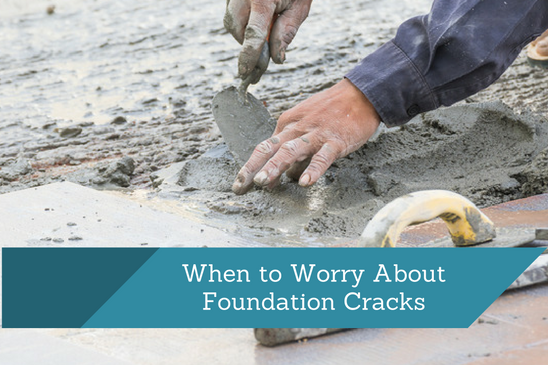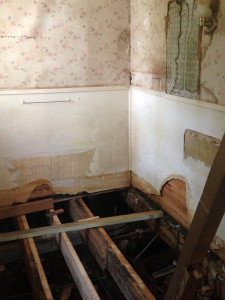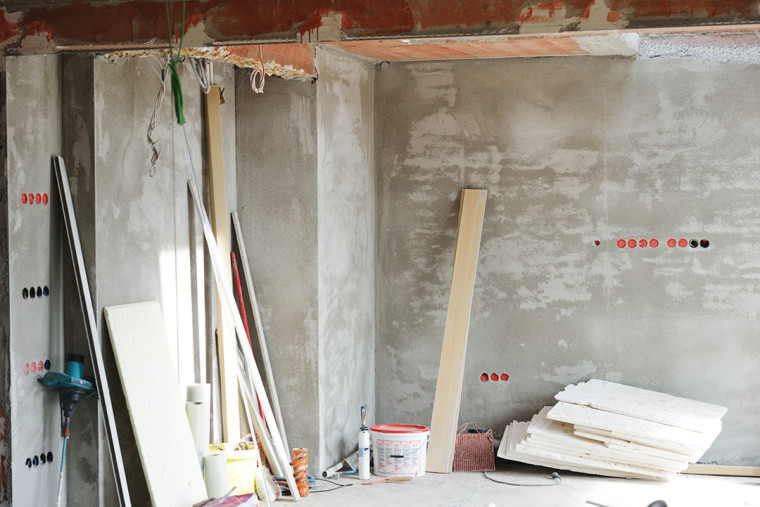
When to Worry About Foundation Cracks
So you’re a regular DIYer who performs routine maintenance around the home when needed and knows how vital it is to check for leaks and cracks regularly. But you still run into problems. Unfortunately, it’s sometimes out of your control. Don’t beat yourself up about it.
The fact is, foundation cracks can still occur, even when you have leak detection and prevention measures in place, like a sump pump and clean and clear gutters. Now it’s essential to focus on repairing the problem correctly and before it gets too serious.
Other factors that can lead to foundation damage are loose soil, very dry or wet soil, inadequate drainage, poor construction, earthquakes, and temperature changes. You see, you certainly can’t control many of these factors. Of course, flooding is the most common cause of foundation damage, so make sure to check your home if you’ve recently been through one.
Now that you know that a crack in foundation is just a fact of life let’s look at when to worry about them and when it’s time for some foundation crack repair
Types of Foundational Cracks
Hairline Cracks
These super thin cracks usually appear on the inside of your foundation and are most often caused by seasonal changes or shrinking concrete if your building is new. These cracks rarely let water in and can be easily repaired with epoxy fill. This will stop them from widening and allowing future water seepage. Also, the epoxy fill can flex with the wall through any further changes.
Multiple or Wider Cracks
If you see cracks more expansive than a hairline and lots of them, they are most likely due to foundation settling. Unfortunately, settling worsens over time and will become more and more tricky to repair. So if you see settling cracks in ceilings, drywall, and around doors and windows, you’re also likely to find a crack in foundation outside or uneven spacing between your bricks. This is a problem that needs to be fixed.
Horizontal or Stair-Step Cracks
Are you looking at long horizontal cracks in your basement, crawlspace, or leaning walls? If so, you have a reason to be concerned. If your walls are made with concrete blocks, the cracks will look like stair-steps and are a sure sign your foundation is in big trouble. The most likely cause? Saturated soil outside the building is applying force to your walls. Get the experts in immediately.
Symptoms of Foundation Cracks
Apart from the visible cracks around your house, there are various other damage symptoms to look out for. Although some symptoms can indicate minor or severe issues, a little unevenness resulting from settling is not unusual. However, you should watch for the following more dramatic changes inside your house:
- Bowing walls
- Misaligned doors and windows
- Sloping floors
- Drywall cracks
- Ceramic tile and brickwork cracks
Cracks in foundation: When to Worry
As we’ve mentioned before, concrete and block foundations often develop cracks because concrete and mortar shrink as they dry. And while these shrinkage cracks are nothing to worry about and easily epoxy-filled, some cracks can be potentially dangerous for your building.
Keep a Lookout
Monitoring your cracks is an excellent way to avoid major repairs at a later stage. Another area to keep an eye on are the 90-degree corners in your house. Use a ruler to check the width of any cracks and keep note of them, and check again to see if they have widened. A handy tip: get an expert for any crack wider than 1/2 inch.
Not All Cracks are Problematic
Angular cracks will often occur in the top 12-16 inches of brick walls laid directly onto a concrete foundation. These cracks are caused by the bricks expanding in summer and pressure on the outer foundation corners. You won’t need to treat these cracks or basement floor and shrinkage hairline cracks unless they start to widen.
Cracks in Foundation: When to Worry
Horizontal cracks signify a major breakdown of the wall by outside pressure. Vertical cracks, when wider at the top, indicate a dropping foundation and heaving center, and when wider at the bottom, they usually mean a heaving foundation and dropping center.
The seriousness of the crack in foundation will also depend on the location, size, and the number of cracks. And, of course, whether the building has any other signs that you are dealing with structural issues.
Unfortunately, a crack in foundation can lead to further issues, such as roof issues, leaks in the basement walls, door and window issues, and framing problems. And as you can imagine, this can often be a costly repair process.
What’s a Typical foundation crack repair cost?
As you can imagine, it isn’t easy to give an average foundation repair cost. There are so many individual variables for each foundation issue. For the most accurate estimate, contact the specialists at Accurate Leak.
We take a look here at a rough estimation for foundation crack repair according to ConcreteNetwork.com.
The national average comes in at $5,857 for foundation repairs. But, you can expect some costs to be as low as $250 and as high as $100,000. Of course, your type of foundation, how accessible any sunken foundations are, the cause of your foundation problem, and your choice of repair method influence cost. For example, an affordable solution would be for minor crack repairs or leveling with slabjacking. However, if you need long-term stabilization to your foundation, you’ll have to employ piering, which is costlier.
If you’re concerned about your foundation starting to crack, and the best options to fix the problem, call the team at Accurate Leak and Line!






